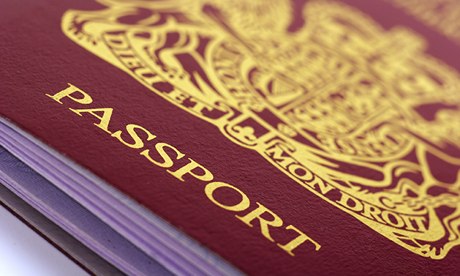Want to buy citizenship? It helps if you're one of the super-rich
Malta has announced it is selling passports to foreign investors for £546,000, but that's cheap compared with other countries, such as Britain and the US

A foreign investor looking to get a passport for an EU country would be better off looking at Malta's citizenship deal. Photograph: Alamy
Citizenship is like rhythm: if you weren't born with it, it's not easy to get. However, in the EU there is a fast-track for the super-rich. The Maltese government now has a scheme to attract "high-value" foreigners to the country, by selling passports for £546,000. Which, by passport standards, is pretty cheap.
The move has ruffled feathers in the UK. In part, because of worries about unchecked immigration; the passport grants its holders full EU citizenship, including freedom of movement (Maltese citizenship also come with a visa waiver on entry to the US). Labour's shadow immigration minister, David Hanson, told the Financial Times the move risked being "a backdoor route" to EU residence and was "not a tight or appropriate immigration policy". The government faces calls from British and European politicians to intervene and put a stop to the plan.
But the main reason the UK is annoyed is not because we worry foreign millionaires will come here to claim benefits. It is probably that Malta's scheme is more attractive than our own deal for super-rich settlers. The British equivalent, the Tier 1 (Investor) visa programme, assesses applicants on the basis of their ability "to invest £1,000,000 in the UK". Foreign investors who hold £10m of their money here can apply for permanent residence after two years living in the country. Compared to Malta's plan, it looks like a load of hassle.
About 20 countries operate similar systems. In the US, Immigrant Investor Visas are awarded to foreign nationals who invest $1m in the economy and create 10 full-time jobs for US citizens within two years of arrival. Those who do so are awarded permanent residence and, after three more years, can apply for full citizenship. In the Canadian province of Quebec, "Immigrant Investors" must invest $800,000 CAN (£457,000) in an interest-free, five-year bond and show at least two years of proven management experience. (Canada suspended its nationwide immigrant investor programme in July 2012 but Quebec's continues.)
The European schemes tend to be more lenient. Greece, Cyprus and Macedonia offer fast-track resident permits for foreign investors who spend a minimum of €250,000 to €400,000 (£210,000 to £335,000) in the country. Spain grants a residency visa to foreign buyers who spend €500,000 (£418,000) or more on Spanish property, though the wait for permanent residency and EU citizenship is five years.
The major beneficiaries of such schemes are the Chinese global rich. Since October last yea, 318 residence permits have been issued in Portugal to foreign property buyers who spent over €500,000. Of these, 248 went to Chinese nationals; 15 went to Russians, and nine each to Angolans and Brazilians.
The Maltese system may be the most open of the lot: its applicants do not need to be resident in the country, and are not expected to prove any further investment in the islands' economy. It is expected to attract around 40 people in its first year, rising to 300 a year from 2014.
But their stay may be short-lived. Polls show 53% of Maltese oppose the move, and the opposition leader, Simon Busutil of the Nationalist Party, has pledged to revoke the passports if returned to power. In fairness to him, it won't be hard to expel citizens who have never actually lived there in the first place.
No comments:
Post a Comment